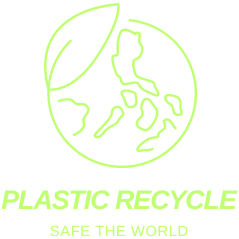
Photo Credit: Epoch Biodesign
Plastic waste is a global problem, with large amounts of this non-biodegradable material being produced each year, and only small amounts of it get recycled.
To help address this, a UK biorecycling startup called Epoch BioDesign, which grew out of founder Jason Nathan’s high school science project, aims to use plastic-eating enzymes to speed up plastic recycling and lower costs, as TechCrunch reported.
Industries produce 430 million tons of plastic each year, with two-thirds of this being discarded after a single use, creating an environmental emergency. If this trend continues, the United Nations warns that plastic waste could triple by 2060.
Only 9% of this waste is recycled, and 75% ends up in landfills. Since plastics don’t biodegrade, they break down into tiny fragments called microplastics, which can be found in the air, water, and even your own body.
Epoch Biodesign aims to jumpstart a recycling revolution with its biorecycling methods, and its backers, including the owner of fast-fashion giant Zara, have helped the company secure $18.3 million in Series A funding to scale up the process.
Later this year, the company will take its plastic-eating enzymes out of the lab and into a full-sized production facility, which Nathan says will result in the consumption of 150 tons per year, according to the report.
Right now, the company has been focused on enzymes that can tackle polyester and two types of nylon, which are composed of plastic.
“We’re just sort of un-baking the cake and then putting things back together at the other end,” he told TechCrunch, adding that it should only take a matter of hours before waste fabrics can be reclaimed into molecularly identical materials in a form that can then be reused to make new products.
“We’ve been able to generate tens of thousands of plastic-eating enzymes in our lab that are unique,” he added, leveraging AI to help find the most promising candidates.
“What we’re effectively doing is we’re concentrating hundreds of millions of years, billions of years of evolution into a few cycles in the lab that happen over the course of days, weeks, months.”
TCD Picks » Upway Spotlight
💡Upway makes it easy to find discounts of up to 60% on premium e-bike brands
“We’re making big evolutionary jumps that would be very unlikely to happen just naturally based on random mutations, natural selection.”
While AI is at the core of making this all possible, those computational processes require enormous amounts of energy and use up resources like water to help keep them cool. Advances in green energy and cooling are helping mitigate that impact.
Still, Epoch BioDesign’s biorecycling process is addressing the growing need for a circular economy, with claims that it recovers 90% of the material after processing.
This will help keep materials out of landfills and ecosystems while supplying freshly recycled versions to manufacturers until we can manufacture plastic-free alternatives for a cleaner future.
Join our free newsletter for weekly updates on the latest innovations improving our lives and shaping our future, and don’t miss this cool list of easy ways to help yourself while helping the planet.




